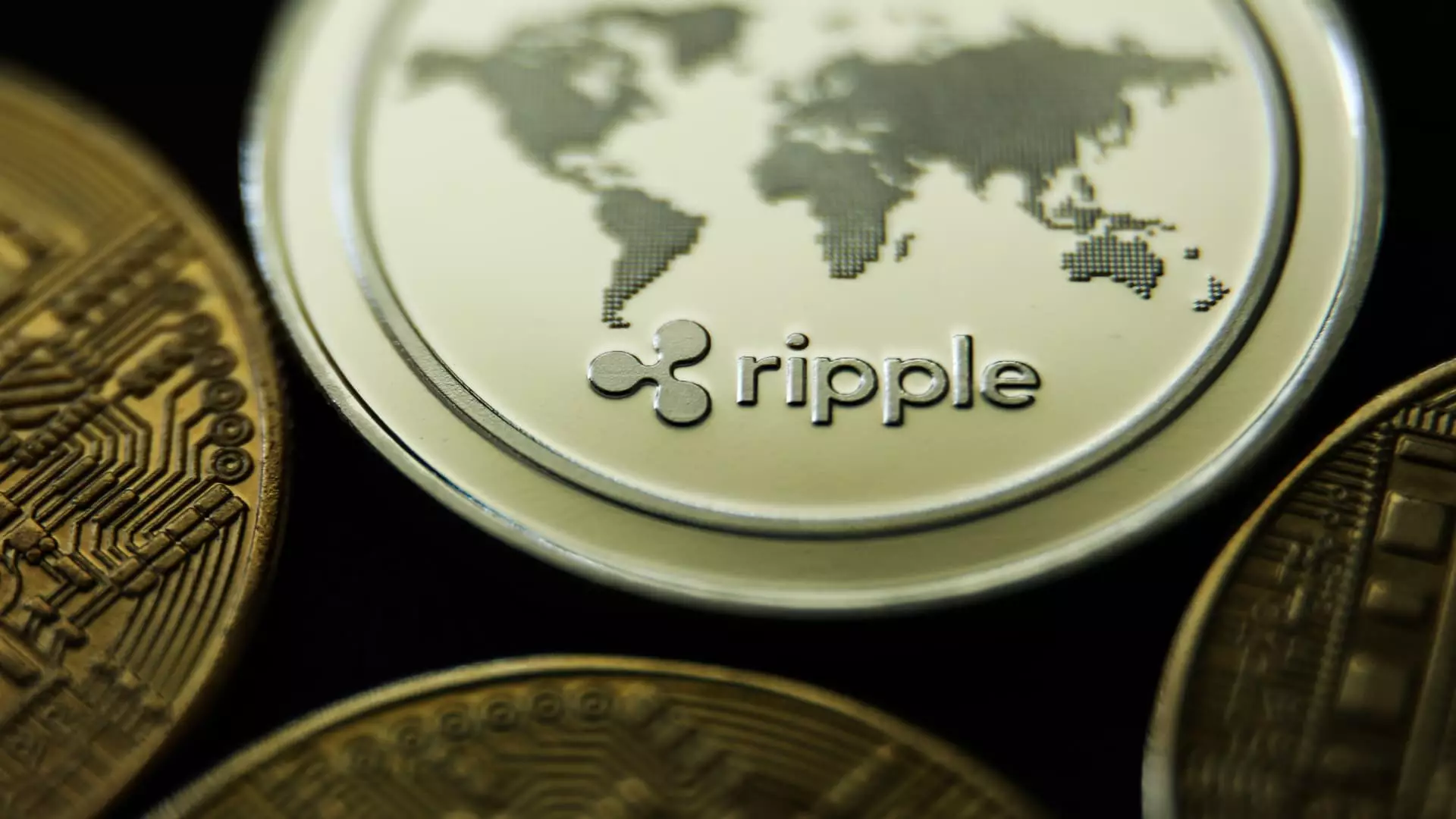Ripple’s decision to acquire Hidden Road for an impressive $1.25 billion is a strategic move that signals the growing convergence of cryptocurrency and traditional finance. Founded just five years ago, Hidden Road offers essential services like clearing and prime brokerage, which are indispensable for institutional investors engaging in complex trading strategies. This acquisition marks a pivotal moment for Ripple, which has long been navigating the tumultuous waters of regulatory scrutiny and market volatility.
For the crypto industry as a whole, this acquisition is a stunning reminder of the scale and ambition that exist within the space. Ripple, valued at $11.3 billion in a recent share buyback, is extending its reach into prime brokerage, a move showing strong conviction in the potential of digital assets. However, one has to wonder if this is more about survival than innovation; is Ripple purchasing Hidden Road because it genuinely believes in the future of cryptocurrency, or is it merely desperate to avoid being left behind as interest wanes?
Balancing Act: Growth versus Risk
Brad Garlinghouse, CEO of Ripple, commented that Hidden Road had encountered growth constraints due to balance sheet limitations and sought external capital. While it’s commendable that Ripple is positioning itself to propel Hidden Road to new heights, this strategic partnership is fraught with risks. The demand for clear, regulated pathways in the financial sector is undeniable, but is Ripple able to navigate the complexities that accompany such a disruptive shift?
Moreover, the crypto environment is still in flux, with institutional acceptance not yet guaranteed. More than a mere acquisition, this is a challenging balancing act between seizing opportunities for growth and managing the perils inherent in a nascent industry still trying to gain legitimacy. The very act of acquiring a prime brokerage firm can be seen as a double-edged sword; should the market respond positively, Ripple could flourish, but a downturn would magnify its vulnerabilities exponentially.
Regulatory Landscape: A Cautious Optimism
The recent withdrawal of legal pressures from the U.S. Securities and Exchange Commission (SEC) has given some breathing space to Ripple and similar companies. Garlinghouse noted that a supportive regulatory atmosphere lends credence to acquisitions like this, but one must remain skeptical. The idea of being ‘pro-crypto’ is still a complex and often contradictory notion within governmental spheres.
Unlike past years, when the SEC under Gary Gensler adopted an aggressive stance toward crypto firms, the current outlook seems to be easing. However, history shows that political winds can shift quickly and unexpectedly. Therefore, while Ripple may feel emboldened now, relying too deeply on a favorable regulatory environment may prove to be a precarious strategy. It’s essential to acknowledge that the political landscape can change, and what appears beneficial today may not be tomorrow.
RLUSD: A Double-Edged Sword
Another intriguing aspect of the acquisition is Ripple’s plan to utilize its RLUSD stablecoin as collateral across Hidden Road’s offerings. A stablecoin can stabilize value in volatile markets, but it also presents its unique challenges. The effective integration of RLUSD into the prime brokerage products offered by Hidden Road will necessitate both operational efficiency and stringent regulatory compliance.
Using a proprietary stablecoin as collateral can be a strategic advantage, but it also risks raising questions about the stability and trustworthiness of the coin itself. With more institutional investors looking for secure, scalable solutions, any failure in this regard could discredit Ripple, which has already faced significant scrutiny.
While Ripple is undoubtedly making strides toward innovation and expansion, it must tread carefully to avoid tangling itself in further regulatory clutches.
The Future of Ripple and the Crypto Industry
As Ripple wades deeper into the prime brokerage arena, it is clear that the stakes are higher than ever. The crypto industry is evolving, and the traditional financial system is slowly awakening to its potential. However, this transition is not without its obstacles. Ripple’s acquisition of Hidden Road is a double-edged sword; it could present tremendous opportunities or result in costly blunders.
While there’s much to be optimistic about, a center-right perspective calls for a cautious approach to reforming financial systems that are already rife with challenges. Ripple’s ambitious gambit may usher in new horizons for both the company and the industry. Still, it comes with the imperative for accountability, transparency, and robust regulatory compliance that cannot be ignored. The future of cryptocurrency hangs in the balance, resting on the choices made today.

